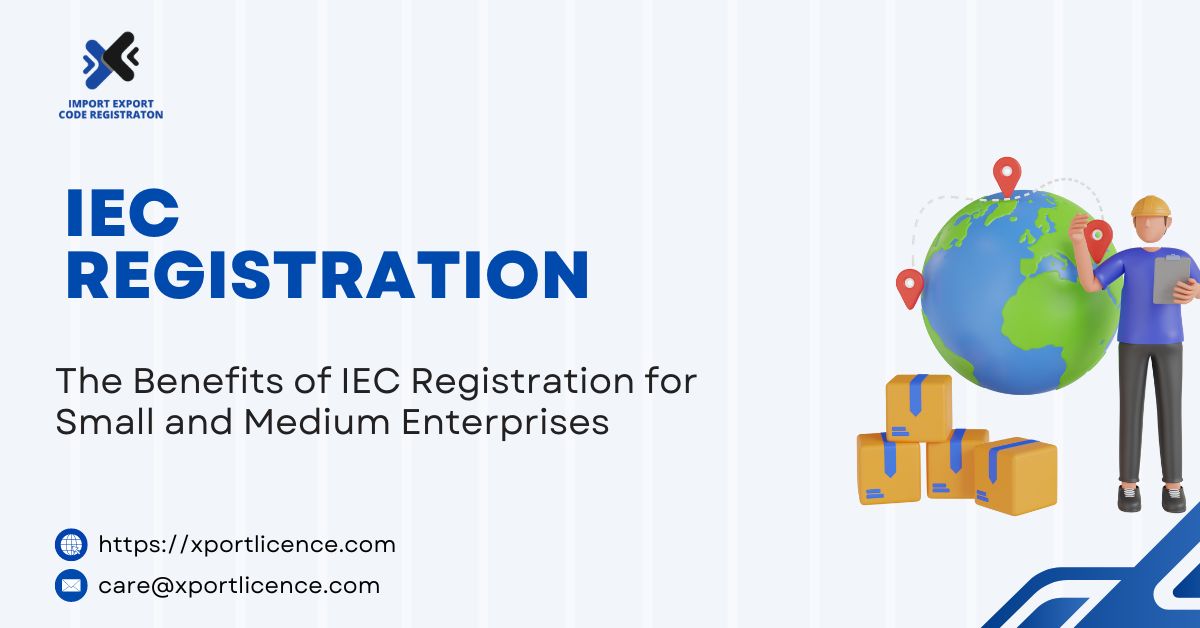International Trade plays a crucial role in the global economy, and for small and medium enterprises (SMEs), obtaining the necessary certifications and registrations can be a game-changer. One such vital registration is the IEC Registration. The IEC serves as a gateway to international trade by allowing businesses to access new market opportunities and expand their customer base. It is a critical component for SMEs seeking to diversify their revenue streams and enhance their global presence.
Understanding IEC Registration
The Importer Exporter Code (IEC) is a unique 10-digit code issued by the Directorate General of Foreign Trade (DGFT) in India. It is mandatory for businesses involved in import and export activities. The IEC registration is a critical requirement for engaging in international trade, ensuring that businesses comply with the regulations set by the government.
Access to International Markets
One of the most significant advantages of IEC registration for SMEs is the access it provides to international markets. Without an IEC, businesses are restricted to domestic markets, limiting their growth potential. IEC registration allows SMEs to participate in global trade, helping them reach a wider customer base and explore new market opportunities.
Enhanced Credibility and Trust
Having an IEC enhances the credibility and trustworthiness of a business. It signifies that a company is legitimate and compliant with the necessary regulatory requirements for international trade. This credibility is crucial for building relationships with international clients and partners.
Streamlined Customs Clearance
IEC registration simplifies the customs clearance process for SMEs. Customs authorities require the IEC to process import and export shipments, ensuring that all trade activities are documented and regulated. This streamlined process reduces delays and facilitates smoother transactions.
Access to Export Incentives
IEC registration enables SMEs to access various export incentives and benefits offered by the government. These incentives can include duty drawbacks, export subsidies, and other financial benefits designed to support and encourage international trade.
By leveraging these incentives, SMEs can reduce their operational costs and enhance their competitiveness in the global market. For instance, duty drawbacks allow businesses to claim refunds on duties paid on imported raw materials used in the production of exported goods. Such benefits can significantly improve the profitability of SMEs engaged in export activities.
Simplified Documentation and Compliance
IEC registration simplifies the documentation and compliance requirements for international trade. It provides a standardized code that businesses use for all their import and export transactions, streamlining the paperwork involved. The IEC simplifies this process by consolidating various requirements into a single registration. This simplification helps reduce administrative burdens and ensures that businesses can focus on their core operations rather than getting bogged down by regulatory complexities.
Eligibility for Government Tenders
Many government tenders, both domestic and international, require participating businesses to have an IEC registration. For SMEs looking to expand their business by participating in government contracts, having an IEC is often a mandatory requirement.
The ability to bid for government tenders opens up additional revenue opportunities for SMEs. By successfully securing such contracts, businesses can gain significant projects and establish themselves as reliable suppliers or service providers in the global market.
Increased Business Opportunities
IEC registration can lead to increased business opportunities by facilitating connections with international buyers and suppliers. It allows SMEs to participate in trade fairs, exhibitions, and business networking events where they can showcase their products and services to a global audience.
Improved Market Research and Intelligence
With IEC registration, SMEs gain access to valuable market research and intelligence resources. Government agencies and trade associations often provide insights and reports on global market trends, trade policies, and industry developments.
Facilitates Import and Export Transactions
IEC registration is essential for conducting import and export transactions smoothly. It provides a unique identification number that is used for all trade-related activities, including opening letters of credit, placing orders, and processing shipments.
Legal Compliance and Risk Mitigation
By obtaining an IEC, SMEs ensure that they comply with the legal requirements for international trade. This compliance reduces the risk of facing penalties or legal issues related to trade regulations. For businesses operating in multiple countries, understanding and adhering to different regulatory frameworks is crucial. The IEC helps SMEs navigate these complexities, ensuring that their trade activities are conducted legally and reducing the risk of regulatory non-compliance.
Note : Click here if you wish to update your IEC – Update IEC Code Online
Conclusion
IEC registration offers numerous benefits for small and medium enterprises looking to engage in international trade. From accessing global markets and enhancing credibility to streamlining customs clearance and gaining access to export incentives, the advantages of having an IEC are significant. For SMEs, obtaining IEC registration is a strategic move that can unlock new growth opportunities, improve business operations, and enhance global competitiveness. As businesses seek to expand their reach and tap into international markets, IEC registration serves as a vital tool for success in the world of global trade.

